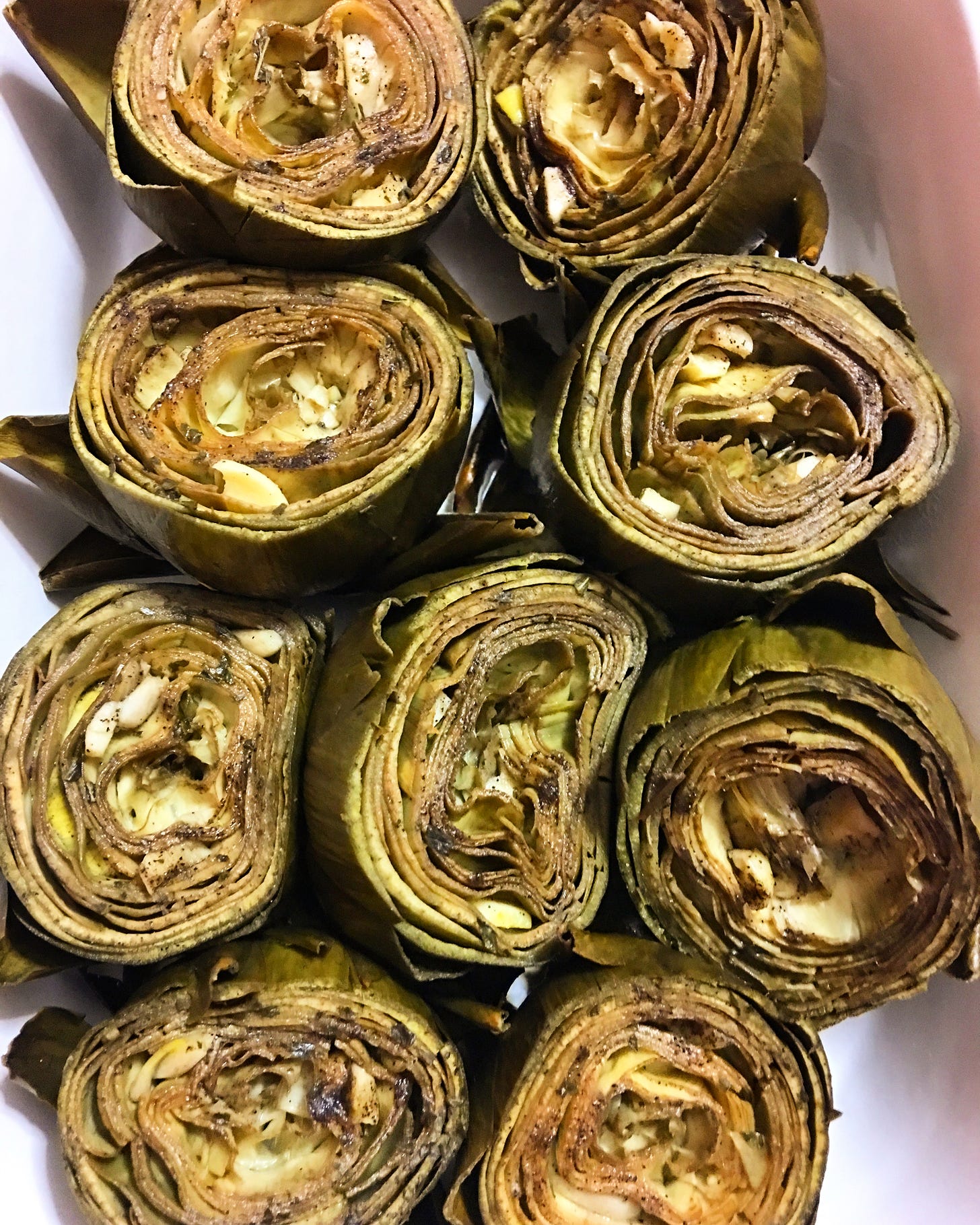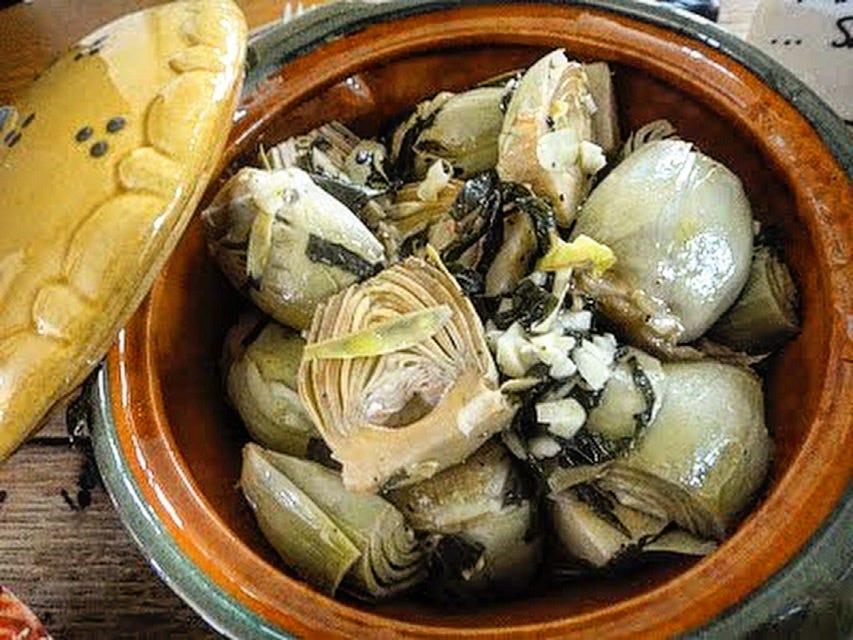When I was a kid, I was the only one who didn’t eat artichokes.
While I was never a picky eater, there was something about artichokes that left me cold. My mother would simmer trimmed large globe artichokes for what seemed like hours over the stove, cooked with homemade chicken broth and lots of freshly grated Parmigiano Reggiano. I can smell them now, but sadly can no longer taste them, and that recipe, along with many others, is lost.
Fast forward to the here and now. Olive Oil: From Tree to Table, by Peggy Knickerbocker, was a gift from a work colleague, and I immediately loved the story-telling behind both olive oil production and the recipes themselves. It was one of those books that seemed like a good one to cook my way through, and Artichokes Angelo was the second recipe I tried. I never really thought about who Angelo might be, beyond the brief and charming story the Knickerbocker tells of sharing a meal with Angelo and several chefs and seeing him take a case of fresh baby artichokes and make this dish.
As I made these artichokes recently to bring as a hostess gift for a dinner party, I idly read the description of Angelo again. Knickerbocker describes him as a forager and an ironsmith. And it clicked. Angelo was none other than Angelo Garro, who Michael Pollan goes hunting with in The Omnivore’s Dilemma. That was the first book that made me passionate about knowing my food and understanding where it comes from (and ultimately led me to spend 10 weeks in Sicily, as I wrote about last week).
The chapter that describes their outing—which includes a gourmet picnic eaten in the middle of the woods—is a highlight. To imagine that I am ever so slightly closer to someone as passionate about food as Angelo, through the mechanism of a printed recipe on a page, is a wondrous thing. That my Italian mamma is smiling approvingly down at me somewhere in the great beyond is a much closer connection that I celebrate with every delicious bite.
While they’re not quite at the market yet, gently cooked and marinated baby artichokes are a wonderful way to usher in the season. These artichokes can be served as part of a Mediterranean spread of appetisers, as a delicious side to roasted or grilled meats, or simply enjoyed on their own, eaten delicately one by one.
Artichokes Angelo
Olive Oil: From Tree to Table, Peggy Knickerbocker
There are many recipes for marinated artichokes that start with canned artichoke hearts, and they’re fast, easy and delicious. But if you want a contemplative time in the kitchen, with not much more effort, do try to make these “from scratch”. They’re worth the effort.
If you can resist eating them all, the artichokes can be stored for several weeks in the fridge. Put in a container with a tight fitting lid, cover with olive oil until the artichokes are submerged, and serve as needed. These make a great hostess gift, as they can be made ahead and needn’t be eaten right away.
24 baby artichokes
2 lemons
4 cups water, divided
2 cups red wine vinegar
20 mint leaves, julienned
2 cloves garlic, minced
½ cup olive oil
Squeeze the lemons and pour the juice into a medium bowl, straining out the seeds. Add the lemon halves to the water.
Trim the outer leaves of the artichokes until you get to the tender green leaves. Trim the stem off and the top ½ inch of the tops. Cut the artichokes in half lengthwise and as you do, put them into the lemon water.
Bring the remaining 2 cups water and the red wine vinegar to a boil in a medium saucepan. Drain the artichokes, discarding the lemon halves, and add to the boiling water.
Turn down the heat to a merry simmer and cook for 10 to 15 minutes, or until the artichokes are fork tender. Drain and leave in a colander for 30 minutes or so, to ensure all the liquid is drained.
While the artichokes are cooking, combine the mint, garlic and olive oil in a serving bowl. Once the artichokes have drained, add them to the bowl and toss or mix gently until they are thoroughly coated.
The artichokes are ready to serve but will be even better if you let them marinate for several hours. They can be left at room temperature, or stored in the fridge overnight. Cover and let come to room temperature before serving (you can serve them cold but the flavour really sings when they are room temperature).








These sound delish!